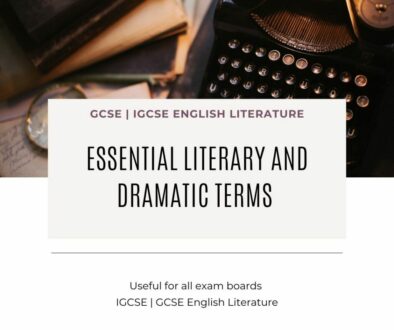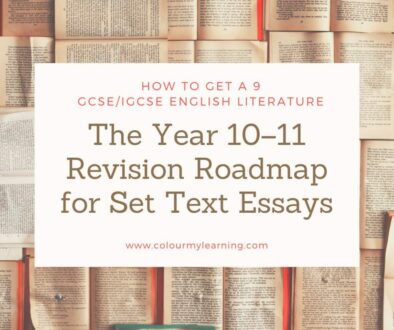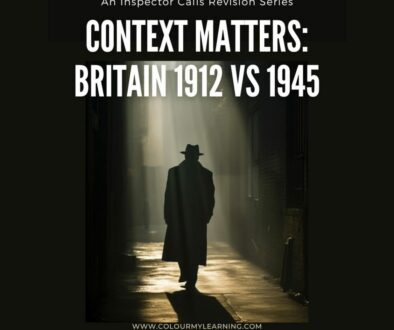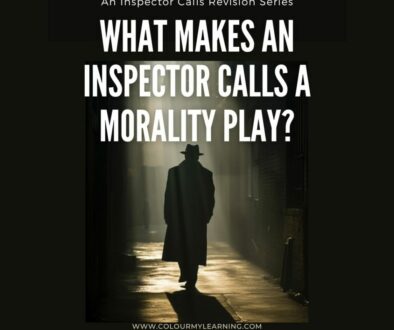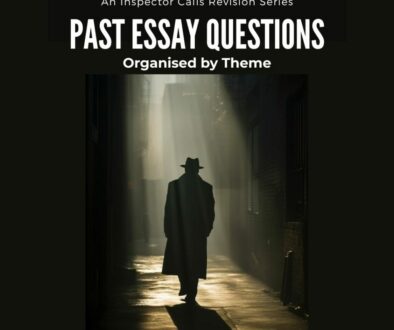Key Themes in An Inspector Calls – With Quotes and Exam Tips
An Inspector Calls is more than a mystery play — it’s a call to reflect on society, justice, and how individuals treat one another. Written by J.B. Priestley in 1945, just after the Second World War, and set in 1912, the play explores what happens when people avoid responsibility and ignore inequality. Through the story of Eva Smith and the characters who contributed to her downfall, Priestley invites his audience to consider the values that shape society — and the consequences when those values go unchecked.
Understanding Priestley’s Social Vision
Understanding the major themes of the play helps students see how characters, structure, and language all contribute to its meaning. Below, we explore the seven key themes from the play, each explained with short analysis and supporting quotations. These can support your exam responses, revision planning, or classroom discussion.
Social Responsibility
This is the central theme of the play. Priestley uses the Inspector to deliver a clear message about the need to care for others — especially those without power or privilege. Social responsibility means recognising how our actions affect others, and Priestley presents this as a moral duty that some characters embrace and others resist.
“We are members of one body. We are responsible for each other.” – Inspector Goole
This line summarises the Inspector’s entire message. Characters like Sheila and Eric begin to understand it, while Mr and Mrs Birling reject it. Priestley uses this divide to explore the dangers of selfishness and moral blindness.
Class and Social Hierarchy
Class plays a major role in the characters’ attitudes and behaviour. Eva Smith’s suffering reveals the vulnerability of working-class individuals in a system built to benefit the wealthy. Priestley shows how those with social power often use it to protect themselves and dismiss others.
“Girls of that class—” – Mrs Birling
This phrase shows Mrs Birling’s prejudice and unwillingness to empathise. Mr Birling also uses his position to justify sacking Eva. Priestley uses these characters to criticise class inequality and question whether status should excuse responsibility.
Generational Conflict
There is a clear divide between how the older and younger characters respond to the Inspector’s questions. The older generation cling to traditional views and refuse to reflect, while the younger characters show more willingness to change.
“You’re beginning to pretend now that nothing’s really happened at all.” – Sheila Birling
This line shows Sheila’s growing frustration with her parents’ refusal to learn. Priestley uses generational conflict to highlight the possibility of progress — and to show that younger people may be more open to social change.
Gender and Power
Gender roles and expectations are explored through the experiences of Eva Smith and Sheila. Eva is judged, dismissed, and exploited by men in different ways, while Sheila begins the play as a stereotypical upper-class daughter but develops her own voice.
“But these girls aren’t cheap labour – they’re people.” – Sheila Birling
This moment signals a shift in Sheila’s thinking. She begins to see Eva not just as a shop assistant, but as a person with feelings and worth. Priestley uses gender to explore power imbalances — and to question whether progress is possible when attitudes remain unchallenged.
Truth, Illusion and Deception
Several characters try to maintain appearances or hide aspects of their behaviour. The Inspector’s role is to reveal the truth, gradually stripping away the false sense of respectability in the Birling household.
“He never seemed like an ordinary police inspector.” – Sheila Birling
This quote suggests that the Inspector is more than a typical authority figure — he represents truth, conscience, and moral judgement. Priestley uses this theme to explore what happens when people care more about appearances than ethics.
Power and Authority
The play examines different forms of power: economic, social, gendered, and moral. Mr Birling represents capitalist power and privilege; the Inspector represents moral authority. Priestley contrasts these forms of power to question which one carries real weight.
“Public men, Mr Birling, have responsibilities as well as privileges.” – Inspector Goole
This reminder challenges Mr Birling’s belief that wealth and status justify his decisions. Throughout the play, Priestley shows that true authority is not about control, but about accountability.
Change and Redemption
Several characters are given the opportunity to reflect and change. Sheila and Eric take this seriously. Others — particularly Mr and Mrs Birling — dismiss the Inspector’s message and return to self-interest. Priestley presents change as both possible and necessary.
“I know I’m to blame – and I’m desperately sorry.” – Sheila Birling
Sheila’s willingness to take responsibility marks her growth. Priestley uses her transformation to offer hope that society can become more just and compassionate — but only if people are willing to learn from their actions.
Exam Tip: Writing About Themes
Themes help you structure your response and show a deeper understanding of the play. In your exam, you’ll often be asked to write about a theme directly, or through the lens of a character or moment. To build a strong response:
- Identify where the theme appears clearly
- Choose at least one short, relevant quote
- Explain how Priestley presents the theme (language, behaviour, stagecraft)
- Connect it to the play’s message and audience response
Example:
The theme of class is developed through the way Eva Smith is treated. When Mr Birling says she had “too much to say,” his dismissive tone shows that he sees working-class confidence as a threat. Priestley uses this moment to criticise attitudes that value profit over people.
How to Revise Themes Effectively
To revise themes, create a set of notes or a revision grid for each one:
- Title of the theme
- Key quotes (2–3 per theme)
- Characters linked to the theme
- What Priestley is showing the audience
- A brief example of how to write about it in an exam
This approach makes it easier to revise efficiently and write with confidence when the theme comes up in your exam.
If you are now familiar with the themes in the play, see if you can identify what themes are asked in the Past Exam Questions An Inspector Calls. if you are able to identify the themes, it will help you in writing a solid outline that will answer the question well.
Go Further with the Full Revision Guide
Our An Inspector Calls Revision Guide includes:
- Full commentary on all 7 key themes
- Exam-style practice questions with planning prompts
- Model paragraph structures and sentence frames
- Quote banks, structure tools, and AO1/AO2 guidance


